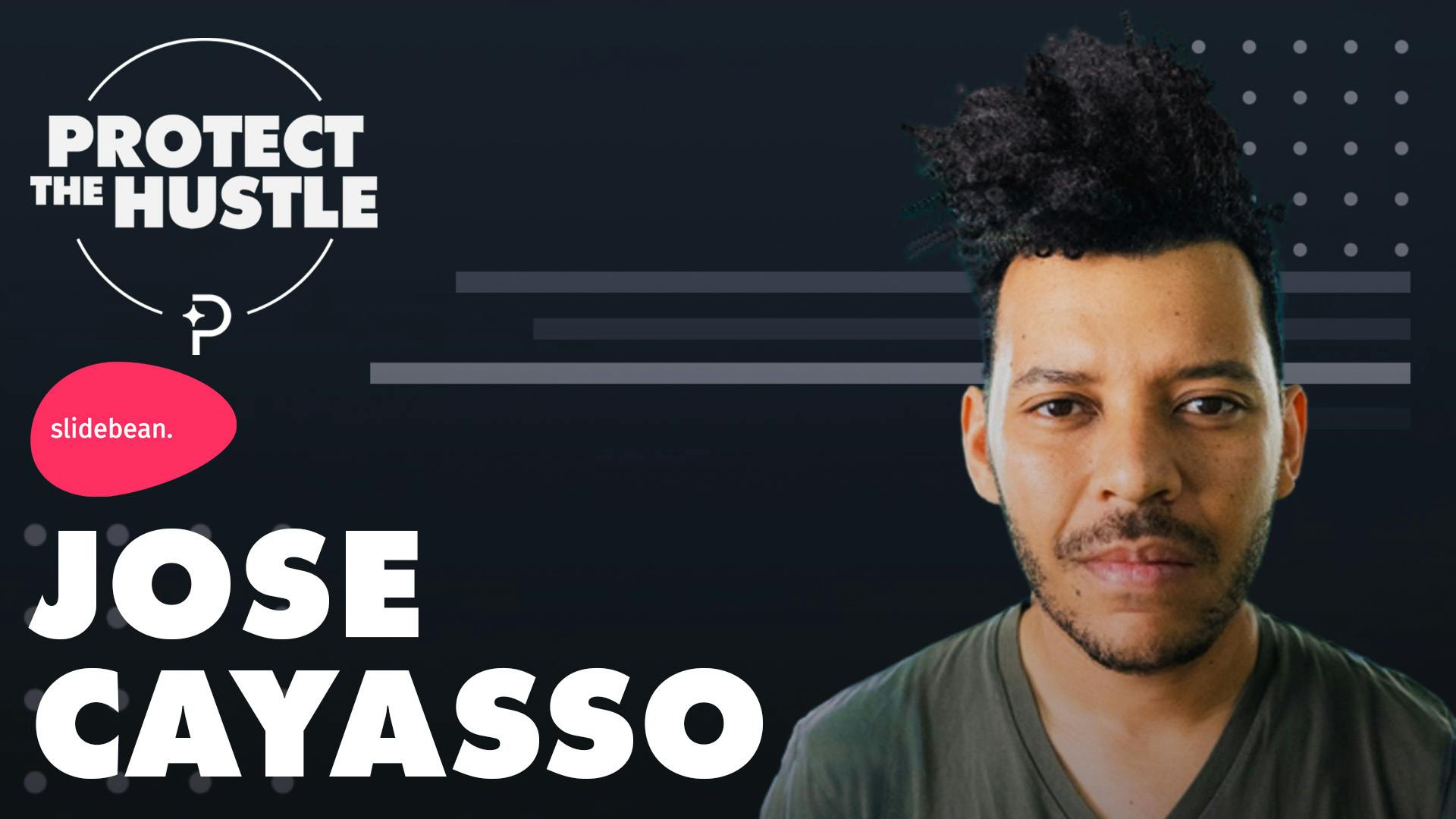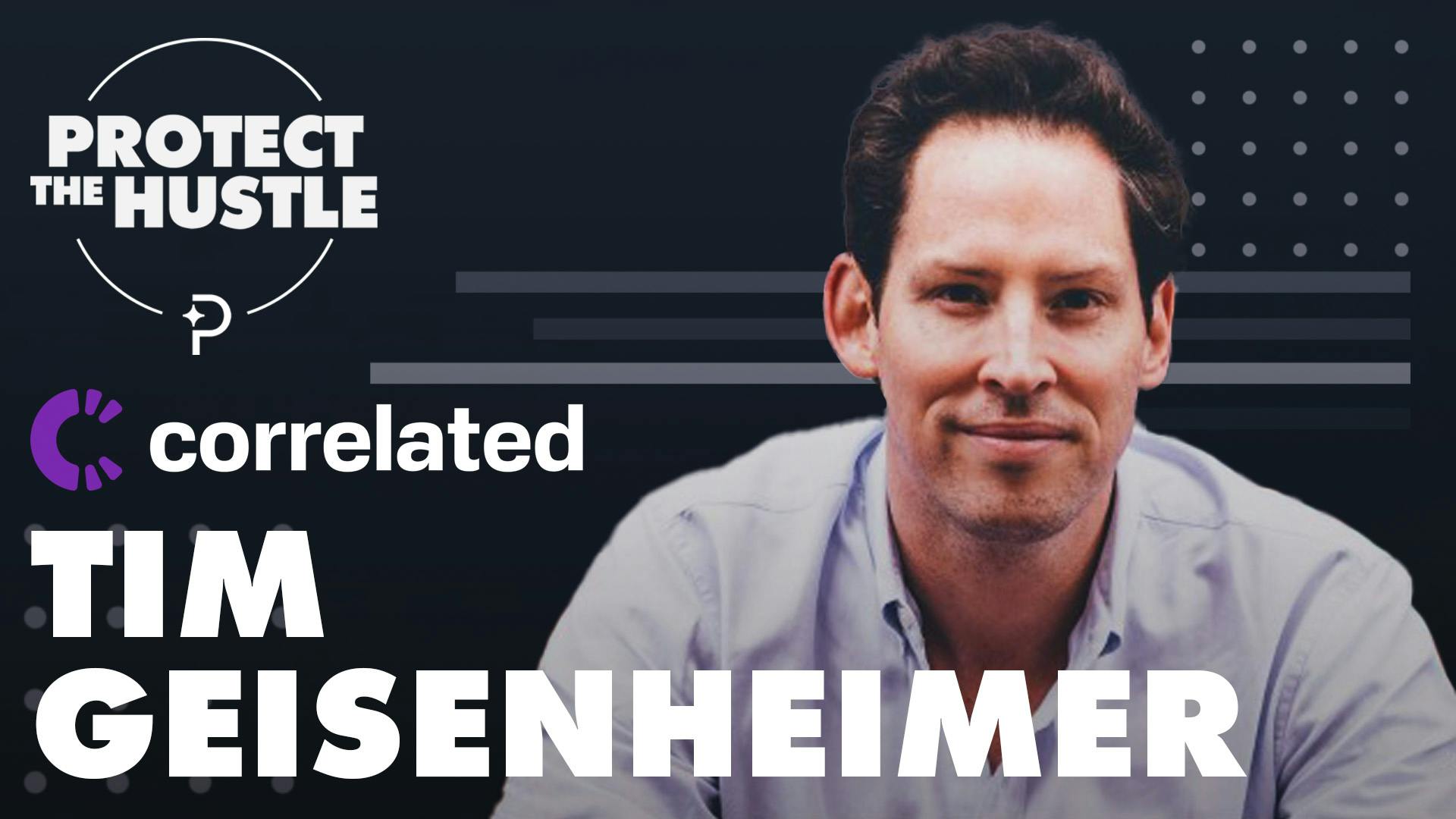
PandaDoc's Mikita Mikado on Harnessing Resilience in the SaaS World
An Introduction to Mikita Mikado
Imagine a towering oak tree, its roots sprawled and deeply anchored in fertile soil while its branches stretch towards the sky. This magnificent tree embodies resilience, as it stands unshaken through the harshest of seasons - whether it be the biting cold of winter or the searing heat of summer. This resilience is its lifeline, and a testament to the principle that having strong roots can help one weather the most tumultuous storms.
Now, let’s pivot this to the B2B SaaS landscape. It's an ecosystem where rapid innovation, cut-throat competition, and incessant disruptions are routine. To thrive here, much like the oak tree, a company must possess deep roots in the form of a solid foundation, a resilient team, and a robust product. And who better epitomizes this spirit than Mikita Mikado? Through personal hardship and real-world challenges with his company, PandaDoc, Mikado has proven himself to be as resilient as the sturdy oak. Stay tuned as today’s episode takes you through Mikita Mikado's inspiring journey, and the strategies that have enabled him to build and sustain a successful venture despite adversities.
High Level Overview:
- Building a resilient SaaS business requires strategic planning: Mikita Mikado emphasizes the importance of setting up a strategy every year, breaking it down into manageable initiatives with their own set of KPIs and goals.
- The resilience of a company is reflected by its leadership: Mikado's personal resilience, developed from hardships faced early in life, has been crucial in steering PandaDoc through challenging times.
- Resilience can be cultivated: While Mikado's resilience was forged through difficult circumstances, he posits that it can be developed through various means and continuous training.
- A successful SaaS business is adaptable and versatile: Like PandaDoc, businesses must be prepared to evolve and adapt to new market conditions, customer demands, and technological advancements.
- Resilience propels growth in the face of adversity: Despite facing numerous challenges, Mikado has grown PandaDoc significantly, demonstrating how resilience is key to business success.
Mikita Mikado's Resilience
Resilience is more than just a buzzword; it is a cornerstone for success. It is the quality that allows us to bounce back from setbacks, adapt to change, and keep going in the face of adversity. It is the thread that weaves itself through every challenge, every failure, and every success story. In the context of a SaaS company, resilience can be the difference between survival and extinction, between thriving and merely surviving.
Resilience is forged through experience
- Mikado's resilience was developed through his experiences of hard, tedious labor as a child. These experiences shaped his perspective and taught him the value of hard work and tenacity.
Resilience is transferable
- The resilience that Mikado developed in his personal life has translated into his professional career. It's enabled him to navigate the myriad of challenges in building and growing a successful SaaS company.
Resilience is a team effort
- Mikado highlights that his co-founder and team members at PandaDoc each have their own stories of resilience, which collectively contributes to the resilience of the company as a whole.
Resilience is about persistence
- Despite facing significant challenges, Mikado’s unwavering commitment to his goals serves as a testament to his resilience. His mantra of persistence continues to drive PandaDoc forward.
Beyond these points, it's vital to understand that resilience is not just about enduring; it's about adapting and learning. It’s about using setbacks as stepping stones, rather than stumbling blocks. It’s about viewing challenges as opportunities for growth, rather than roadblocks. In this light, Mikado’s resilience is an inspiring lesson for all of us, demonstrating that the true test of resilience lies not in the challenges we face, but in how we face them.
Further Learnings
Follow Mikita on LinkedIn and Twitter.
Do us a favor?
Part of the way we measure success is by seeing if our content is shareable. If you got value from this episode and write up, we'd appreciate a share on Twitter or LinkedIn.
00:00:03:15 - 00:00:27:16
Ben Hillman
Take a walk around your neighborhood and find a large tree. In fact, go even further and walk amongst the forest, admiring the woods that have stood the test of time. If you don't have access to a forest, imagine for a second the sturdiest tree that you can picture. Perhaps it's a massive oak roots, sprawling and anchoring it deeply into the fertile ground, branches spreading out, reaching for the sky.
00:00:27:19 - 00:00:50:22
Ben Hillman
This tree, in the midst of sudden turmoil, remains a beacon of strength and resilience. No matter the harshness of seasons, the brutal winter frost, the scorching summer sun, and come what may, it stands tall. The oak trees resilience is its key to survival, its lifeline. It is a testament to the truth that the strength of your roots determines how you withstand life's fiercest storms.
00:00:52:13 - 00:01:12:19
Ben Hillman
The problems we face in BTB Sass are not nearly this dire. Most of us are not dealing with life and death or the threat of persecution, but there is still a metal much like that resilient oak that we must have to survive our own storms. It's a world where rapid innovation, fierce competition and constant disruption are the norm, not the exception.
00:01:12:23 - 00:01:37:06
Ben Hillman
Just like the oak, it requires deep roots, a solid foundational strategy, a resilient team and a product robust enough to weather the winds of change. Enter Mikita Mercado, a man who has come to symbolize resilience in the face of harsh conditions in space and the world beyond it. Mercado's journey from humble beginnings at the helm of a major U.S. company, Panda Doc is a story of persistence.
00:01:37:08 - 00:02:03:09
Ben Hillman
He faced personal hardships navigated through real world issues concerning his company. Like that sturdy oak. He stood tall. Unbowed. Unbroken Mercado. Much like our metaphorical tree, he has anchored himself deep into the bedrock of his convictions, creating a company that not only survives, but thrives even in the face of crisis. In today's episode, we dive into the life and times of Makita Mercado, the CEO, handed up.
00:02:03:14 - 00:02:25:20
Ben Hillman
We'll talk about how he and his company navigate adversity. His strategies for maintaining resilience and why he believes resilience is the bedrock of any successful venture. So tune in as we explore the lessons Mercado has learned from his own trials and triumphs and what we can learn in our own journey in the B2B space landscape. Prepare to be inspired and lightened and equipped with the tools to weather your own storms.
00:02:28:04 - 00:02:49:03
Ben Hillman
From Paddle, it's Protect the Hustle, where we explore the truth behind the strategy and tactics applied to business growth to make you an outstanding operator. On today's episode, Makita Mercado spoke to Andrew DAVIES at the end of 2022 about harnessing resilience in the SAS world. They talk about the panda duck origin story. Navigating unthinkable Tragedies. Advice for founders to build their own resilience.
00:02:49:05 - 00:03:03:15
Ben Hillman
Maintaining growth in spite of challenges and resilience being experienced versus talk. After you finish the episode, check out the show notes for a look into Mikita's resilience. Then, while you're leaving your five star review of the podcast, tell us four resonated most about Mikita's story.
00:03:15:03 - 00:03:17:11
Ben Hillman
First up, the panda duck origin story.
00:03:21:01 - 00:03:31:22
Andrew Davies
Fantastic. Well, Mikita, thank you so much for joining us on Protect the Hustle. Perhaps you can just give a little bit of background behind yourself and how you came to be doing what you're doing now as CEO, CEO of Panda Dog.
00:03:32:08 - 00:03:52:07
Mikita Mikado
Maybe as Mikita. I was born in a small Eastern European country of Belarus in the city of Minsk, on the outskirts of it. Actually born and raised there. And when I was around 19 years old, I got this wonderful, fabulous opportunity to come to the U.S. and start American Dream pay today, because a part of it.
00:03:52:07 - 00:03:59:08
Andrew Davies
Very, very cool. So taught me a little bit about the founding story of Panda Dog. So why Panda doc? Why this space? What was the origination story?
00:03:59:12 - 00:04:25:21
Mikita Mikado
It took my co-founder and I a very long time to build in the doc, and we didn't really have a single event that help us to make a major leap or there hasn't been an overnight sort of this hasn't been an overnight success story. We built one business that helped us to learn and establish expertise and the world of web content management.
00:04:25:22 - 00:04:52:22
Mikita Mikado
That business turned into created an internal problem that what co-founder, my co-founder was eager to solve. That became our first B2B sales product, which was very similar to Panda Dog, but much narrower, much simpler than that led us to more learning and desire to aim higher. And that was the that was the thesis. That was the foundation for Panda Dog.
00:04:53:06 - 00:05:17:03
Mikita Mikado
So sort of one thing led to another. This other thing led to something else. And then slowly but surely we got into panda talk. In essence, Panda Doc is a as an online account management system for contracts, proposals, all kinds of transactional documents. And when was that? Like 15 years ago. 16 years ago. That's kind of like where our beginnings were, where content management and automation.
00:05:17:04 - 00:05:25:22
Andrew Davies
Talk to me about where pad stock is now. So the size and shape of the business, the customers you're serving. You know, clearly it's been a long and winding road to get here. But as an impressive company that you lead today.
00:05:25:22 - 00:05:58:00
Mikita Mikado
Yeah, we help more than 50,000 businesses to streamline their work with proposals, contracts, all kinds of transactional documents that you would use in a business setting. And we help hundreds of thousands of businesses globally to sign documents electronically for free. U.S., UK, South Africa, Chile, Brazil. It doesn't really matter where that business is located as long as they have to deal with contracts, quotes, proposals, agreements, business forms.
00:05:58:00 - 00:06:00:08
Mikita Mikado
Panda doc is a pretty good solution for that.
00:06:00:09 - 00:06:05:15
Andrew Davies
And what is the North Star by which you lead the business? What's the key metric that you're tracking?
00:06:05:16 - 00:06:29:21
Mikita Mikado
We look at a variety of metrics, but as a B2B software, we work at RR. It's a really good predictor predictor of our forward looking revenue, the value that we deliver to our customers, because, you know, it's linear to a value that they sort of share back with us next.
00:06:30:00 - 00:06:31:21
Ben Hillman
Navigating unthinkable tragedies.
00:06:35:10 - 00:06:51:17
Andrew Davies
You mentioned near your you're clearly a US headquartered business. The Minsk office shut down. I've read a few of the articles around that story, that journey. I'd love to hear it. You know, here you kind of look back at that period. Was it 2020 when you were in the press through that period with employees who were being detained?
00:06:51:18 - 00:06:56:19
Andrew Davies
Must have been a massive added complication for a leader of business over in the U.S. to be facing those challenges.
00:06:56:22 - 00:07:24:09
Mikita Mikado
It was very challenging. It is challenging to try to build technology business in authoritarian state. And then when that authoritarian state turns full blown dictatorship, that's just impossible. Yeah, 2020 was extremely difficult for me in the dark the last two years were very, very hard. The country where we started, Belarus has seen a few wave of protests and peaceful protests, but which were retaliated with a lot of violence.
00:07:24:10 - 00:07:49:13
Mikita Mikado
I took a stance against that violence and as a result for my employees got detained in retaliation to my stance. It all ended. They were all out of jail shortly. One person was detained for almost a year. But it's been a it's been a really, really, really difficult year. And then right after that all was over with. Because of that, we made a decision to to move out of Belarus, opened operations in Ukraine right after that.
00:07:49:13 - 00:08:19:17
Mikita Mikado
And 2022, Russia invaded Ukraine. So, yeah, so the last two years have been extremely challenging for people and the team because people had to move their families, relocate. It was, you know, scary. It was very, very scary, very difficult. There's been a lot of pressure. Share one story of the when they shut down our office in Belarus and freezed all the payroll so that people would meet with our employees were able to to get paid for four months.
00:08:19:18 - 00:08:50:22
Mikita Mikado
What happened is only one person out of like 250 quit because of that, which speaks to the resilience of of our panelists and camaraderie that there was and hopefully there is on the team. So, yes, the last two years have been extremely tough. But no matter where our panelists are now today, they remain strong, resilient and will remain together, even if, let's say, in Kiev.
00:08:51:01 - 00:09:06:09
Mikita Mikado
Our employees have to do their work utilizing power generators and diesel power generators, which is very, very tough. I mean, this whole like getting work done while while your city shelter is very, very tough.
00:09:06:23 - 00:09:36:09
Andrew Davies
And I mean, the situation in Kiev, you know, I'm based in London. Normally it feels very close to home because we've got we've got eight Ukrainian refugees living with us who fled through that process, who are constantly getting WhatsApp messages and, you know, all of the the inside scoop from their families back at home. So, you know, that office, has that decreased in size of some of those people got across the borders you maintaining maintain your team there or how are you thinking about supporting people through these this political unrest and then now the invasion in.
00:09:36:09 - 00:10:02:20
Mikita Mikado
A few ways one of the way we support people is by supporting Ukrainian charities, initiatives and causes. We believe that this terrible war is going to be over. Ukraine is going to win, and that's going to change things for better, not just in Ukraine, but in the entire region. We did have a relocation program before the war started.
00:10:02:20 - 00:10:34:10
Mikita Mikado
Prior to the war starting, we still have it. But I mean, Ukraine is the country of Ukrainians. Many of them don't want to leave, rightfully so. We do have an office now in Warsaw. We have an office in Lisbon. We support war criminal and anyone who wants to go anywhere and work from anywhere can do that. But yeah, a lot of our employees are involved in various causes, you know, various humanitarian or fundraising activities that require them to stay within Ukraine.
00:10:34:11 - 00:10:49:20
Mikita Mikado
And then honestly, at this time with sole source, important is just human empathy. And while we we can I mean, we're not there. We're not in this situation like we can't fully understand what's going on and how they feel. But we should be trying.
00:10:52:21 - 00:10:55:22
Ben Hillman
And now advice for founders to build their own resilience.
00:10:59:14 - 00:11:18:13
Andrew Davies
And so through this period, you must have learned a huge amount about communicating with your employees, communicating with your partners. You know, is there anything you wish you'd done differently or any frames of reference is that you've learned through that period on how you can bring people with you on this journey and how you can support them as being a founder employee, as well as someone who's facing these issues or.
00:11:18:13 - 00:11:53:14
Mikita Mikado
Sure, I learned through mistakes. I learn through different perspectives, through advice. It's very hard to communicate in the at the time. So for me, such stress, it requires proper training and knowledge. I didn't have. I don't have I will probably not fully have ever. Yes. So there's been a number of cases where I wish I had said or written or express myself differently.
00:11:53:14 - 00:11:57:18
Mikita Mikado
So yeah, man, it's not an easy job for sure.
00:11:57:22 - 00:12:19:11
Andrew Davies
You talk very casually about these things, but you must have unbelievable resilience to have walked through those couple of years while still leading the business. So there are probably many people listening who don't have the same level of crisis to walk their employees through but still are dealing with you, whether it was through the COVID, what now? The recession with layoffs, walking through people, difficult conversations.
00:12:20:06 - 00:12:31:06
Andrew Davies
What advice do you give to other founders in speaking to their employees, You know, confronting them with truth, in helping them through these difficult processes, whether it be political, whether it be social?
00:12:31:06 - 00:13:03:22
Mikita Mikado
You know, in my case, like, the advice I'd give is surround yourself with good founders and team members who are really good at things you're not very good at. For instance, we just discussed communication, communication, and that's not necessarily my stroke and an ex event. That's this. And I have a bias for action. I have a bias for moving, pushing, driving things forward is pretty typical of CEOs.
00:13:03:22 - 00:13:37:05
Mikita Mikado
But like that that also sometimes eats a few blind side. So and I am fortunate because I have people in my team that I feel like as a team when we come together, we complete each other and help each other out a lot. So that's, you know, that's really the that's really the first as the first advice I'd give, another thing I'd probably mentioned is which at times is also one of my blind sides and which my team helps me to sort of which my team overcompensate.
00:13:37:06 - 00:14:02:23
Mikita Mikado
I just think compensates is lead with empathy. We had three core values learning, making a positive feedback and having fun. This is sort of the why behind our efforts. Abandoned like two years ago when all the crisis started, my co-founder insisted that we at a fourth value, which is empathy, be sympathetic to customers, fellow pandas and people that surround us.
00:14:02:23 - 00:14:31:03
Mikita Mikado
So I think at times of crisis, it's important to make decisions fast. It's important to you to make decisions timely, but also and act timely. But it is also important to be empathetic and sort of understand fully how people feel, what they think, and what are the how you can sort of make them feel better without necessarily doing something or like pursuing some kind of action.
00:14:31:03 - 00:14:42:04
Mikita Mikado
So that for me was those were my expected. That's why I'm giving that advice now, because when you go aha, then it kind of sticks in your head and then you want to pass it over.
00:14:42:19 - 00:14:49:18
Andrew Davies
Very cool. And how did your investors support or play a part in this? Because that must have been a new situation for most of those.
00:14:49:18 - 00:15:16:02
Mikita Mikado
Surely our investors were blessed with investors that we have, but the work we have been very supportive through all this times of crisis, very supportive since the beginning of the war. I know that the funds that invest in painted Rock Duke in action and did a number of good deeds, donations to pro-Ukrainian charities and causes, I mean, things like this, they definitely impact the business.
00:15:16:08 - 00:15:42:13
Mikita Mikado
So they've been very patient to us. The companies still perform extremely well despite all the external factors extremely well has been performing extremely well. However, when we try to put myself in their shoes and something massive is happening to the company and something scary is happening, then like it's very hard to to keep calm. Yet they did.
00:15:45:23 - 00:15:48:15
Ben Hillman
Next. Maintaining growth in spite of challenges.
00:15:52:07 - 00:16:11:15
Andrew Davies
You know, it sounds like the experience you've been through should have been a massive distraction to growth and would have been the best excuse anyone could have had for why things weren't going well. And so how do you how do you feel you've been able to juggle that with your team to continue maintaining the growth and health of Panda while also, you know, battling on these other battlegrounds?
00:16:11:20 - 00:16:16:18
Mikita Mikado
Well, Andrew, I'm asking myself how it has to although like your business has grown, you.
00:16:16:18 - 00:16:30:05
Andrew Davies
Speak about how having other people around you with different strengths is part of that process. So so how have you how have you sort of, you know, tried to seek out people who are different to you and your Cofounding team and and your leaders around you? Is up something you've been intentional on?
00:16:30:05 - 00:16:58:23
Mikita Mikado
I've been intentional on it. However, I think I wouldn't be 100% truthful that like say that we're all different in every aspect. Like there are a lot of similarities and there are a lot of differences yet. Yes, I try to be intentional about hiring teammates who are much stronger than I am in the areas where I like suck like that were really good.
00:16:59:01 - 00:17:08:20
Mikita Mikado
There is right to wear really bad and that like I think paid pretty good dividends that I think paid pretty good dividends to me personally.
00:17:09:05 - 00:17:19:23
Andrew Davies
And when you sit now, hopefully without a crisis of this magnitude coming up in 2023, although we're all entering into a rivalry. But which has certainly some economic challenges.
00:17:20:07 - 00:17:37:14
Mikita Mikado
I could you know, that was my wish for four New years, like for the Santa in 2021, that 2022 is not going to be like 2021 in 2020, that it's going to be much better. It's going to be sort of calm and steady and and yada yada, yada. Yeah.
00:17:37:21 - 00:17:50:21
Andrew Davies
Well, let's hope the 2023 doesn't have the same challenges. But what are you planning for? How you how long a horizon do you plan on for Panda dog? How you looking forward to next year? Yeah. What's in the future of Panda Doc as a team and as a business, as an as a product?
00:17:51:00 - 00:18:12:17
Mikita Mikado
I vision spans four years out, yet it's four optimistic years. Most likely it's going to take us a little longer to fulfill that vision. More like six or seven. But we'll see. We'll see. We'll try. We'll try to be fast or try to run a vision spans four years out. Will we try to do is we what we want to do?
00:18:12:17 - 00:18:42:18
Mikita Mikado
What we aspire to do is we want to eliminate inefficiencies, bureaucracy. We started with transactional documents, contracts, proposals, forms, quotes, all the paperwork, especially the kind of paperwork that goes in between different companies, different businesses, or in some cases business and consumers. That's the that's the workflow that we try to streamline, try to make full the digital. I'm like many other solutions on the market.
00:18:42:18 - 00:19:06:14
Mikita Mikado
We have a truly cloud war digital product where documents can be edited, collaborated on automation, can be injected into those documents so that transactions are fully digital versus you know, you send a PDF to someone, you got it, upload it, yadda yadda, yadda, and then the negotiation process process goes into the email and there is an endless email threat.
00:19:06:14 - 00:19:33:09
Mikita Mikado
And the idea is so yes, I like I've gotten into describing the doc in advertising a little bit, but hey, we're in a podcast or I guess so. Yeah. So we have a lot of plans. Like we're still, I feel like in a very small fraction of the total addressable market, the million variety or barriers businesses can use panel that can benefit from it, and that's what we aspire to do.
00:19:33:16 - 00:19:48:16
Andrew Davies
So your vision is four years and then I'm sure you must have that broken down into some much smaller chunks when it comes to, you know, product and value that you're building. So how do you think about the four year vision? That's probably pretty fixed and then the time frames you must be working on in order to, you know, hit your targets day to day.
00:19:48:23 - 00:20:22:20
Mikita Mikado
Every year, put out a strategy actually, you know, announce 2023 strategy to all the panda doc tomorrow morning. Every year we share strategy. There is an operating plan that backs that strategy. The strategy likely strategy has a number of initiatives. Each one of the initiatives has its own strategy. Sure, all of the initiatives has some kind of a set of KPIs and goals, and then we move in months and quarters and that try to keep up with our plans.
00:20:26:03 - 00:20:28:20
Ben Hillman
And now resilience being experienced versus time.
00:20:32:13 - 00:20:55:18
Andrew Davies
I'm thinking back to that topic of of resilience. You know, many investors look for resilient founders, resilient CEOs in the companies they invested. How do you think about, you know, that strength that's clearly been developed in you? Was that something that was developed in prior experiences before these processes you've been in over the last two years? Could people have spotted that resilience or is that something that's made from hard experience?
00:20:56:06 - 00:20:56:21
Andrew Davies
I don't know.
00:20:56:21 - 00:21:30:02
Mikita Mikado
For me personally, I think it's my grandparents who had this like plot of land with little Shack, where for some reason every weekend they wanted to like they use it for farming and they didn't mind child labor. So. So for me personally, that's where my resilience was built or other like that's the yeah, that's the most mundane and tedious labor that I remember.
00:21:30:10 - 00:21:43:18
Mikita Mikado
So that now when I click, click like a computer, I don't feel like it or it feels hard or whatever. Then I remember those potato digging days and I'm like, Oh dude, you're so lucky to keep at it.
00:21:43:18 - 00:21:49:04
Andrew Davies
But it is there a way of developing resilience without facing those hard times or experiencing those hard times?
00:21:49:07 - 00:22:02:18
Mikita Mikado
It'll build there probably millions of those ways. It's just when I think about it, potatoes come to light. It's like potatoes and like whatever. But yeah, that's what comes to my mind.
00:22:02:18 - 00:22:07:08
Andrew Davies
And when you look around, you know, in your in your leadership team, your co-founders, do they have similar stories, do you think?
00:22:07:08 - 00:22:38:13
Mikita Mikado
Oh, my co-founder Sure does. Same country, same because food supplies shortage is something I don't know about other folks. Well, you know, they have their own stories. We all were were kids and we all like we had to do something hard or tedious or routine or you name it. And I'm you know, I'm not a pro in psych analysis to truly know how that how resilience gets built.
00:22:38:13 - 00:22:46:23
Mikita Mikado
But if that's how if it's just a feature of training, sort of, then maybe we can just train it, hopefully, right?
00:22:46:23 - 00:23:04:16
Andrew Davies
Perhaps we can come all the way back to two Panda doc in the Valley Proposition As you go into next year, how do you think about your perfect customer? All the attributes of the perfect customer. So people listening to this, how can they find themselves and your ideal customer profile? What's the characteristics they have? That means that they would be a really successful user of your product.
00:23:04:16 - 00:23:34:11
Mikita Mikado
Really successful user of our product is a business that wants to streamline their work with contracts, proposals, business forms, all kinds of agreements. Most of businesses, unless we talk about some like uber consumer companies, most of businesses deal with contracts. Most of businesses deal with contracts. Many businesses have some kind of CRM implemented and have their CRM or h.R.
00:23:34:11 - 00:23:45:00
Mikita Mikado
Workflows recorded in some system. A record. Well, if you want to save time on generating contracts, proposals or quotes, you're going to get them signed electronically. Check out paid doc.
00:23:45:05 - 00:23:46:12
Andrew Davies
There we go. What a way to end.
00:23:47:14 - 00:24:08:05
Ben Hillman
Shout out to Makita for being on the show. Now you have a better understanding of his resilience. Today we talked about the Panda doc origin story navigating unthinkable tragedies, advice for founders to build their own resilience, maintaining growth in spite of challenges and resilience being experienced versus time. Make sure to give Protect the Hustle a five star review and tell us what lesson from Makita was your favorite.
00:24:08:10 - 00:24:15:21
Ben Hillman
Thanks for listening. Subscribe to and tell your friends about Protect Our Hustle, a podcast from Paddle Studios dedicated to helping you build better SAS.
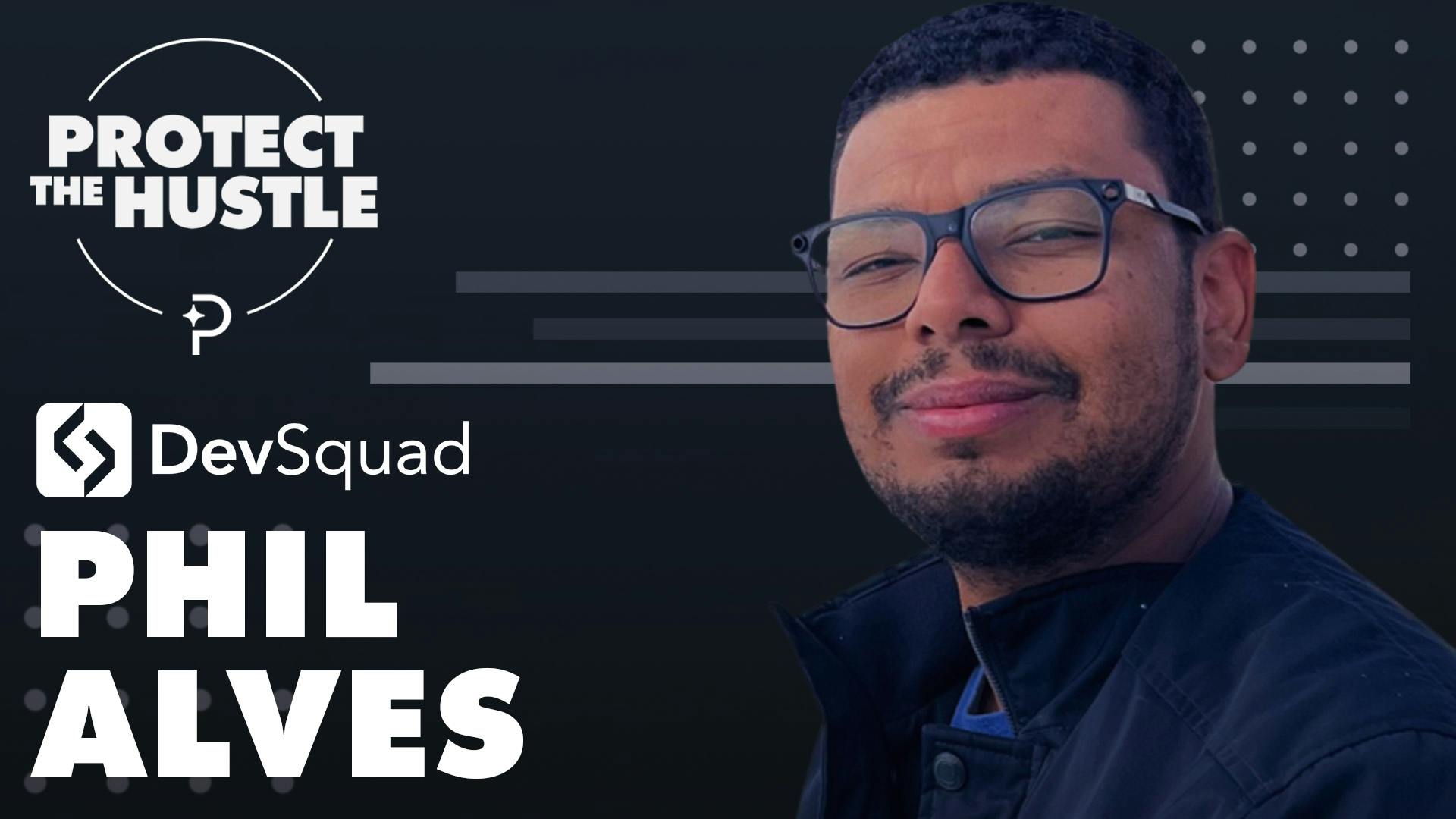
The 6 Instruments to Keep Your Product Alive with DevSquad’s Phil Alves
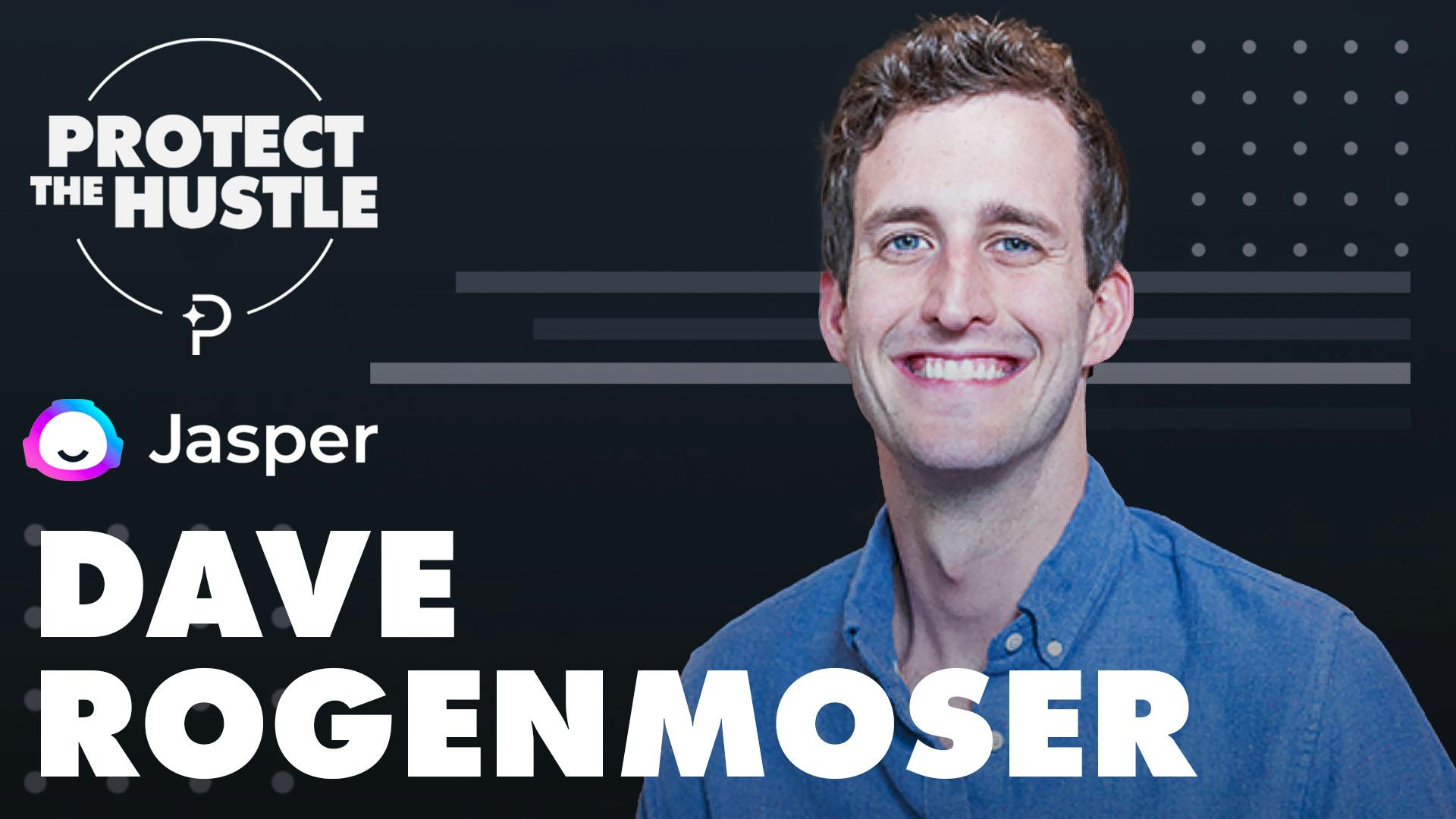
Jasper's Dave Rogenmoser on the importance of personalization
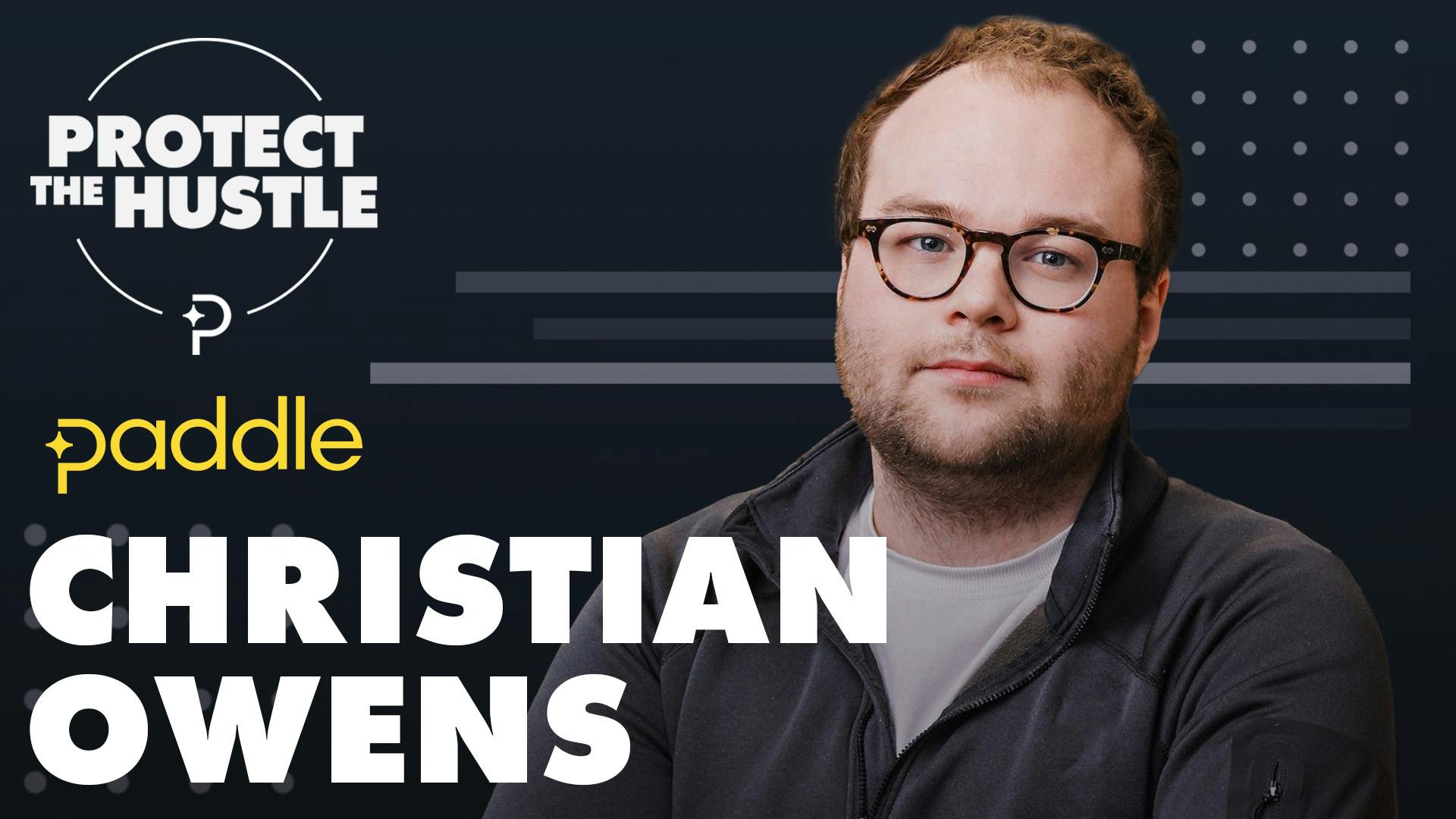
A partnership destined to happen | Christian Owens
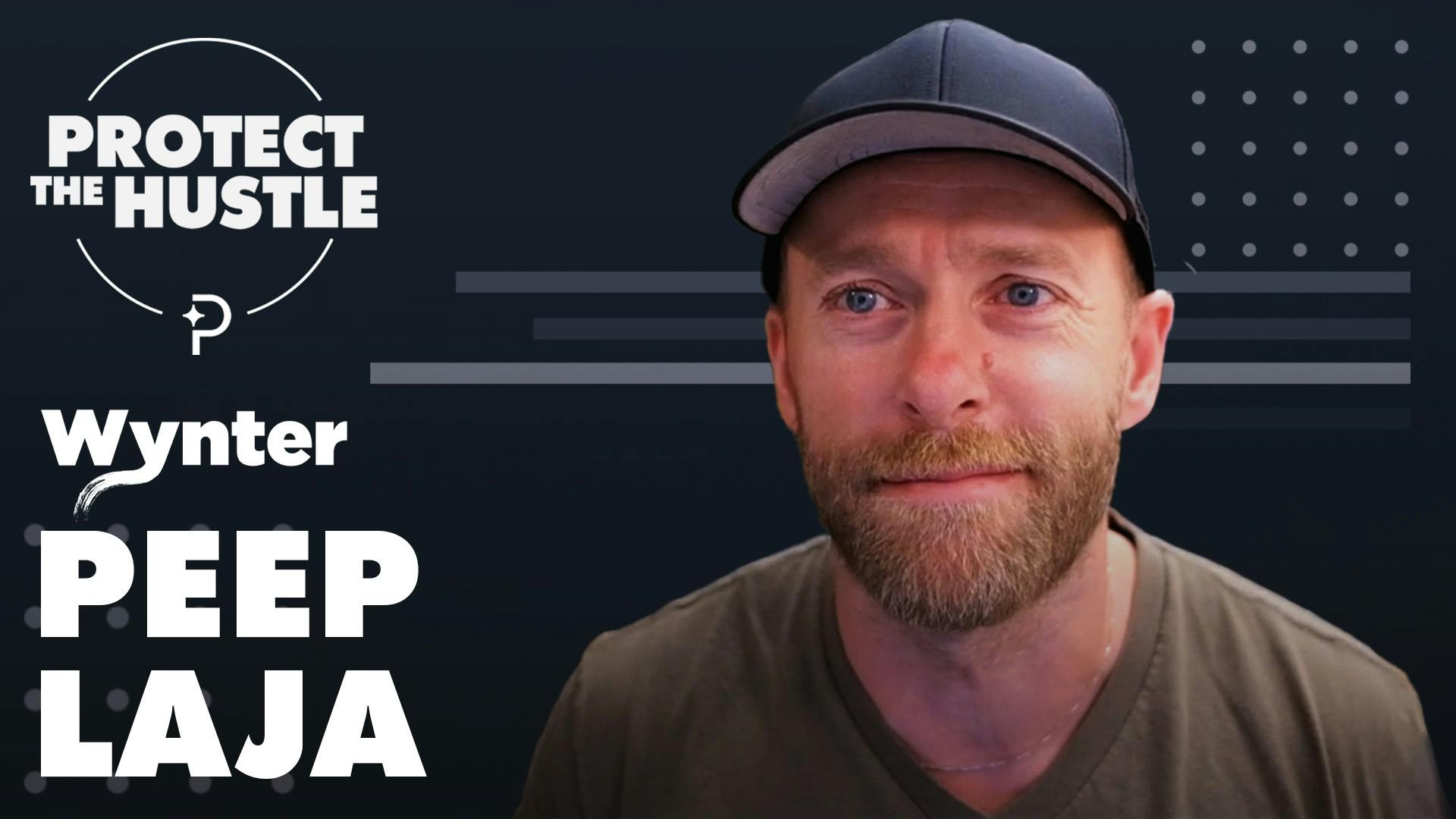
Wynter's Peep Laja on the art of B2B SaaS messaging
